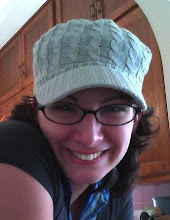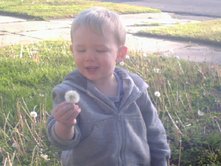Since a friend's recomendation, I am reading "Jesus for President" by Shane Claiborne and Chris Haw. So far, this book is quite facinating. Each page is filled with color and pictures to keep the wandering mind entertained.
The main focus of Part I is to enable the reader to view the Old Testament scriptures through the lens that all we see within the pages of our OT scriptures is God's attempt to "save the world" by helping the people of Israel be "an alternative society on the margins of empire for the world to come and see what a society of love looks like" (60). God chooses the people of Israel to be set apart and embody a different way of living, a way that's different then the violence and tragedy of the empire.
So we look at Adam and Eve and see a people who want to be like God. This selfish choice sets in motion the action of God on behalf of creation. We see the flood, not as a "violent" thing against creation but instead, as "an act of protection from the corruption and violence that plagued the creation" (28). We then view the tower story as a people seeking "limitless power" and God stops them not because they were a threat to God but but because "they were a threat to themselves" (30). God continues to reach out to these people in order to set them apart to live as creation was intended.
Before long we see Moses and his people under the authority of an empire. When God saves them from the empire's oppression, they whine and cry to be back under the empire again. And this book says something that caused me to stop for a moment and ponder it awhile. They said, "it may take only a few days to get of out the empire, but it takes a lifetime to get the empire out of us." God had acted on behalf of the people but the empire they were under had a philosophy that ran through their veins and plagued their thoughts. They did not know how to think God's way because the empire was so engrained in how they viewed the world. Wow. You can't help but start to apply this Old Testament example in today's world.
Then we move to view the prophets through our lens of the Old Testament's story of God saving the world through the people of Israel. These prophets are a "wierd" people who choose to "set themselves apart" from society's "pattern of destruction and war" (41). The prophet's task is to "point us to what is ahead- the fulfillment of God's dream for creation. And they invite us not simply to wait but to begin enacting that dream- now" (46). You can't help but start to think about the role of the pastor in the same way; that our calling is to always set God's vision for how creation was intended in front of a people who are often plagued by the dominating view of the empire of the day.
So far this book has painted the Old Testament to be a beautiful story of God seeking after a people, no matter what they do, no matter what choices they make, or how many times they mess things up. God keeps reaching out and hoping humans will respond in a way that will be as creation was intended. The last paragraph of this section points to the hope in Christ by saying "God's Son will embody all that Israel was meant to be" (60) and failed to be.
What is the point of viewing the Old Testament this way? Having only read the first part, my opinion will be limited. However, I believe the "Introduction" may give us hints on where they are leading us in this book. This quote hit me hard and I had to read it out loud several times. They said, "we assume America is God's hope for the world, even when it doesn't look like Christ." Ouch. Is America the empire of the day that runs through our veins and taints the way we view things?
Perhaps this text is encouraging us to have eyes to see where the empire is so engrained in us we act as if our empire is our savior who we need to save and protect us instead of Christ. May the prophets of today help us see our lives through a new lens and view ourselves as the Church of Jesus Christ, who embodies a different way as creation was intended.
Review: Theology of Luck
10 years ago




1 comment:
I am Kenan from Houston.
I am currently student in MA Theological Studies.
I am Muslim, and I want to make interfaith dialog with Christians.
What do you thing about this?
What can you recommend me to do?
peace,
Kenan
Post a Comment